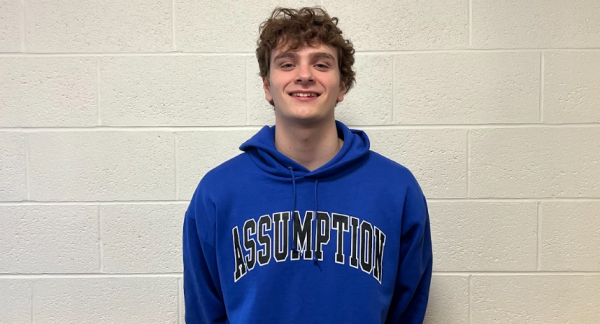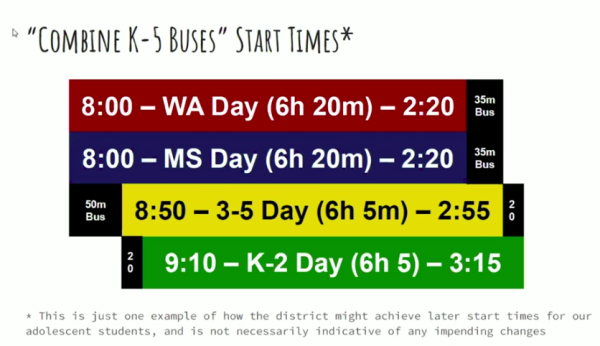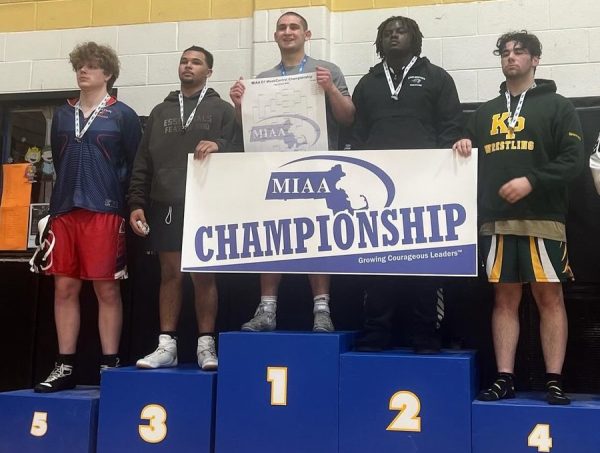Marijuana Study to begin week of Oct. 5
A Massachusetts General Hospital Study concerning the effects of marijuana over time will soon be taking place at Westford Academy.
October 4, 2015
Starting the week of October 5th, Westford Academy will be the site for a Massachusetts General Hospital study on the effects of marijuana use.
The study, led by Dr. Randi M. Schuster, a neuropsychologist at the Center for Addiction Medicine at MGH, will involve assessing students who have never used marijuana, who use it consistently, and who used it before, but do not use regularly.
During the week of October 5th, students will receive surveys concerning substance use during lunch or through email. This survey will only take 5 minutes to complete, and will be completely confidential. All students will take the survey, unless their parent or guardian has specifically requested that their child is not allowed to participate. During the survey students will indicate whether or not they would like to participate further in the next phase of the study. The student’s parent or guardian will also have to express written consent for their child to participate in the next part of the study.
Of the students that wish to participate in the next phase of the study, 200 people will be chosen and categorized into different groups including people who do not use marijuana, people who do, and people who tried it, but do not use regularly. These students will visit with MGH staff 8 times over the following six weeks. All visits will occur at Westford Academy, and while the staff will attempt to schedule visits based on the availability of the student’s schedule, the meeting can last anywhere from fifteen minutes to two hours long.
During each of these visits, all students regardless of whether or not they use marijuana will be asked a variety of questions pertaining to drugs and drug use, daily activities, friends, family, and stress. They will also complete cognitive tests on computers that will test their memory, attention, and decision making, and may even be subject to a urine drug test. All of these tests, just like the survey beforehand, will be completely confidential.
For participating in the study, students will be compensated in the form of pre-paid vouchers, and can earn up to $420 for their involvement. The amount is based on attendance to meetings, performance on the cognitive tests, and the ability to reduce marijuana use if that applies.
Although the student body has been aware of this study’s existence since last year, there have been a lot of questions concerning confidentiality in the study. Many students are afraid that, if they do participate in the study and use drugs regularly, their parents and WA administration will find out.
These worries can be put to rest, as, “all information is coded with a study number and [students’ names] will not appear anywhere on study materials—there is no way for [administration] to know who provided what information by looking at the data,” said Schuster. “The consent form that parents sign clearly says that they will not receive any information that their child provides while part of the study. This means that we will not and cannot tell parents whether their son/daughter is a marijuana user or non-user,” she added.
However, students still find this method as potentially permeable by faculty.
“There’s still a list with a student’s name and their assigned number, so if faculty really cares about who is on the list they will find a way to see it,” said senior Emily Graziani.
Students have also been concerned with the purpose of the study as a whole, with many saying that marijuana’s impact on cognitive ability is well known: one will not perform cognitive tasks with as much efficiency if they are under the influence of marijuana.
“My main concern about this is what they’re gonna do once they get the results because I feel like a lot of people know what the results might be. [So] what are they going to do with that information?” said senior Kerry Simpson.
Schuster has also heard these concerns, but feels as though the real purpose of the study has not been correctly interpreted.
“What we really need to know is how a history of regular marijuana use (not just being high) interferes with cognition. With this study, we are interested in looking at whether (and how quickly) cognition improves when people stop smoking marijuana,” said Schuster.
Because the study focuses on continuous marijuana use, the MGH staff is looking for both users and non-users, to have a control group where they can compare results. Any stark differences between the groups will show which cognitive abilities will recover, and which will not, after 30 days of marijuana abstinence prove that continuous use of marijuana has a lasting effect on cognitive ability.
The study is being reviewed currently by other districts with the goal of starting at other schools in the Boston area soon. School administrations are welcoming the chance to develop better educational programs for their students about marijuana use by using data that directly relates to their student body.
Schuster hopes that the study will be received well, and encourages as many people to participate as possible. The more people that participate, the more data can be collected, and conclusions from the study will become much more accurate. The initial number of 200 participants is subject to change, with Schuster saying, “depending on student interest and our funding, we hope that [the number of students who participate] increases!”

















